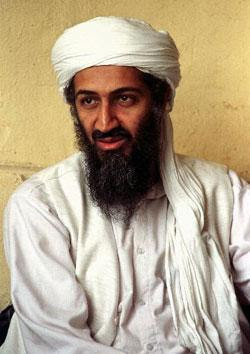Came across this article yesterday and revisited it today trying to decide whether it was worth a post. Since a) I have not posted really at all lately, and b) this is the most e-mailed NYT Op-Ed as of today, I figure it warrants a post. Up front, Nicholas Kristof is absolutely correct that the US Military is a social welfare experiment. The options for child care from a cost-based perspective are outstanding. And the military can be credited with a couple significant accolades for being ahead of the power curve in regard to social equality.
However, these are not the key points Kristof is trying to get across. Instead his main points are that the military should serve as a (or rather, the) model for universal healthcare and investment in human capital. Unfortunately, I disagree. Here’s why:
I think everyone would be pretty disappointed with military healthcare. From issues within the Army’s Warrior Transition Units to the military’s overemphasis on time and anti-inflammatory medication for seemingly any malady, military healthcare has significant issues. Many of my more left-leaning friends repeatedly make the argument that “at least you have healthcare”. Couldn’t argue with that logic. But what I can argue with is the level of care provided by the military. Have a significant orthopedic issue and want to see the world-renowned surgeon up the street? You’re either going to be denied or face significant hurdles trying to get up there even if the doctor accepts Tricare. Random aches and pains? You’ll likely never know what it was (and neither will your doctor), but you’ll absolutely receive a prescription for either Ibuprofen or Naproxen. Is this the best we can do?
On to the more military-relevant topic of Kristof’s Op-Ed, the topic of human capital investment. From the outside, the military’s use of career-level oriented schooling for the purposes of training and human capital investment sounds great. But in reality, the majority of students (past the basic course) attending their career-level oriented course have already spent a significant amount of time executing the positions for which they’re being trained. I spent nearly six months at the Captain-level school learning how to hold essential Captain-level positions within my branch. Would’ve been a decent education had I not already held almost all of the positions. And more importantly, the level the course was taught at was the level I taught my Lieutenants to think at. The Officer education system is woefully outdated, inadequate and expects too little from its students.
Kristof should spend a little more time talking to experienced Soldiers and Officers within the ranks before he makes such a bold conceptual assumption about the broader utility of military healthcare and human capital investment.




.jpg)






Josh,
ReplyDeleteI think your main criticisms are echoed well in the reader comments of that article. I also agree with the point that Kristof isn't prescribing a way doing things as much as pointing out a model worth examining. I have to disagree, however, that looking at DoD welfare programs as a model would necessarily result in the same problems.
TriCare is a perfect example. In my Army career I had TriCare Standard, Prime, and PrimeRemote. And I was able to eventually get a top physician to do a rare ortho surgery at a top hospital. But that happened only after years of trying through the Mil system. At the end of the day, all of the options were there, I just didn't know. TriCare does a crappy job of educating Soldiers and their families and then floods limited resources with patients. But Kristof's point taken on principle is a valid one. The question that is unresolved is the how.
The DoD human capital development strategy is just like the outcome based education now in progress at your local public schools- we don't need to improve the smart ones, we need to make sure the dumb ones don't do too much harm.
ReplyDelete